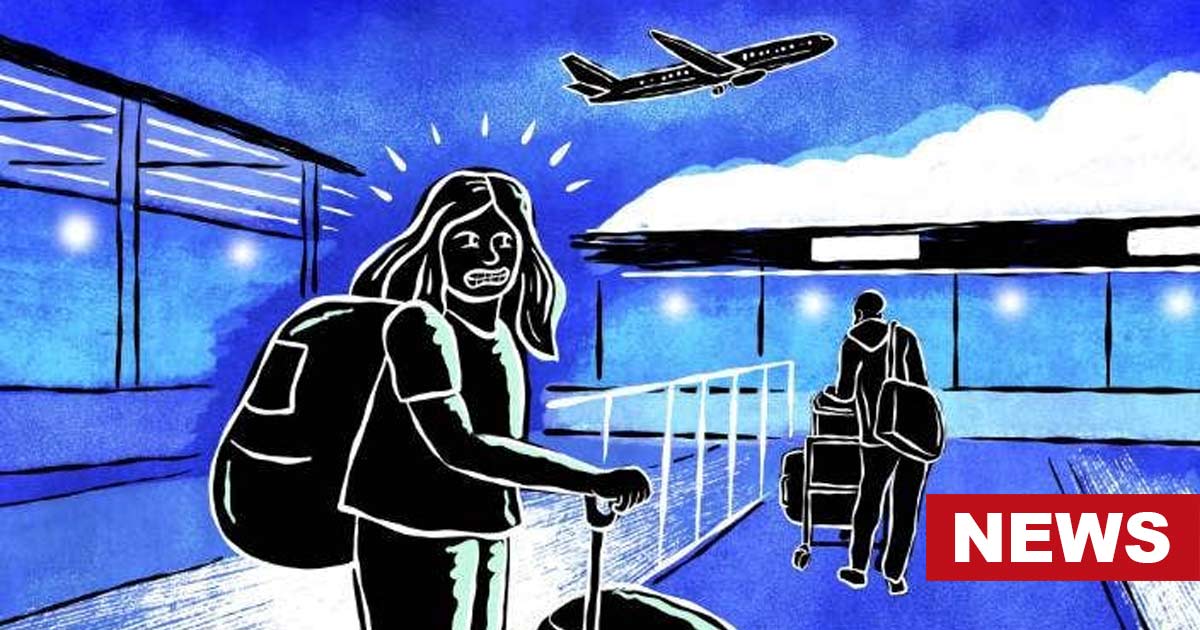Aviophobia, or the fear of flying, affects approximately 2.5 percent of the population. However, a more common experience is generalized anxiety or nervousness surrounding air travel. Many people may know nervous flyer who becomes anxious or loses sleep in the days leading up to a flight.
The way anxious flyers present themselves can vary greatly. Jenny Matthews, an expert in treating anxiety disorders, explains that anxiety about flying can range from mild symptoms like feeling on edge or experiencing nausea to more severe symptoms such as panic attacks, difficulty breathing, and intense fear, which may lead individuals to avoid flying altogether.
When traveling with someone who is fear of flying, it’s important to understand how to provide support. The first step is to ask them how you can help or support them, according to Matthews. Preferences can vary among individuals, as some may seek reassurance through hand-holding and reminders to breathe, while others may prefer a quieter approach.
By knowing in advance how you can support them, you can eliminate guesswork and increase your confidence in helping them through their flight anxiety. In this context, Elisabeth Crain, a doctor of psychology, suggests in an interview with the Travel + Leisure magazine: “Don’t exacerbate [your companion’s anxiety] by talking about it more than you need to. If a flier brings it up and wants to talk about it or needs support in those moments, yes, be there. But otherwise, focus on not over-talking.”
To support nervous flyers before, during, and after a flight, experts recommend discussing fears, developing a plan, considering medication options for severe anxiety, providing flight details, and arriving early to minimize stress.
It’s important to inform the flight crew about the anxious flyers condition for support. Notify them as early as possible, even a few days before the trip. Validating the feelings of nervous passengers is crucial, while suggesting medication or alcohol/drug consumption should be avoided. Redirecting their attention to activities like watching a TV show can help distract from flight anxiety.
When traveling with anxious children, using play to familiarize them with the airport experience and bringing comfort objects can provide security. Be prepared with entertainment options like books or podcasts, ensuring they have headphones. Downloading bilateral sounds or music to headphones can help calm anxiety.
Leading by example and staying relaxed during the flight can positively influence the nervous passengers. Celebrating any successes or accomplishments after the flight, no matter how small, is important to reinforce their resilience.
It’s crucial to allow for adjustments to post-flight plans based on what are the feelings of nervous flyers. Aviophobia can leave individuals feeling fatigued and affect their appetite, so flexibility and understanding are key.
Taking care of your own needs is equally important when supporting the anxious flyers. Prioritize self-care to maintain patience and compassion. After the flight, it’s normal to experience a range of emotions. Recognize and process your feelings before discussing them with your travel partner.
If both you and your travel companion are anxious fliers, collaborate and create a plan of time to support each other without adding more anxiety to the situation. Therefore, when traveling with an anxious person, communicate and understand their needs.
Provide a calming presence and prepare for the flight by sharing details and arriving early. Communicate with the flight crew for support. Validate feelings and offer distractions when needed.
Use play and comfort objects for anxious children. Be well-prepared with entertainment options. Celebrate successes and be flexible with post-flight plans. Prioritize self-care to support the nervous flyers. These recommendations can alleviate anxiety and improve the flying experience for all.

























